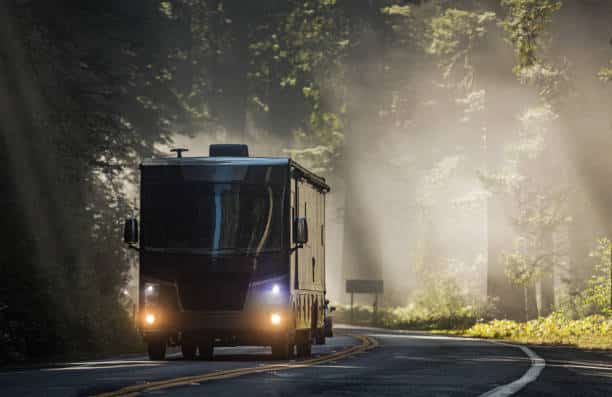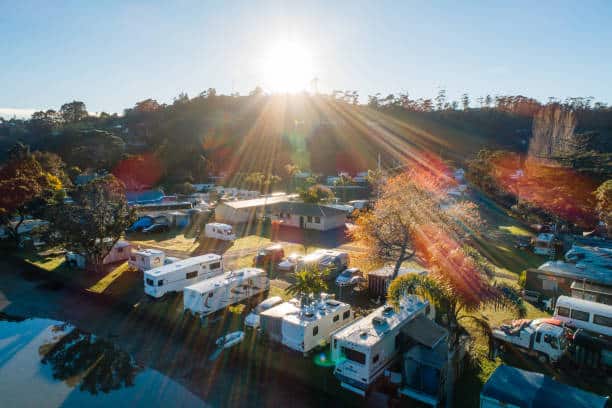RV Park Investments
Lumicre - Your RV Park Investment Experts in Texas!
At Lumicre, we are deeply immersed in the world of RV park investments, regularly engaging with RV park owners and staying attuned to the ever-evolving market in Texas. Our extensive experience and expertise enable us to understand the unique needs of both buyers and sellers, empowering us to help our clients achieve their investment goals.
If you’re looking to purchase an RV park, count on Lumicre to be your trusted guide. Our buyer representation and advisory services will steer you in the right direction. By maintaining direct contact with hundreds of RV park owners every month, we identify opportunities for our clients before they even hit the market.
Planning to sell your RV park? Lumicre goes the extra mile to ensure your property is properly marketed and sold. Leveraging our vast network, we swiftly connect you with qualified buyers. As part of our seller advisory services, we also navigate complex real estate transactions, including the 1031 exchange process.


Why Invest In RV Parks?
Growing demand
Are you in search of a promising commercial real estate investment but unsure which avenue to explore? Are you a people-person who thrives on meaningful connections and relishes the idea of being your own boss? If you answer with an enthusiastic "yes," then venturing into the world of RV park ownership may be the perfect investment opportunity for you. Even if you're not familiar with RV parks or the dynamic RV industry, fear not, as many successful RV park investors attest that the processes and practices involved in owning and managing an RV park can be swiftly learned.
RV parks stand out as high-yielding investments, boasting impressive returns ranging from 10% to above 20%. Compared to other real estate asset classes, RV parks rank among the highest-yielding options, making them an attractive choice for first-time investors and seasoned investors looking to diversify their portfolios. Opting to invest in RV parks allows you to maximize your return on investment and unlock the full potential of your capital.
Whether you relish being a hands-on owner, finding fulfillment in enhancing and maintaining the park while engaging with guests, or prefer a more remote ownership approach, RV parks cater to both styles of management. With relatively low-headache operations and straightforward management, RV parks are well-suited for remote owners seeking an effortless yet rewarding investment. The simplicity of managing RV parks makes them a strong long-term investment while also offering excellent short-term returns.
RV Parks are typically great assets to consider when trying to achieve an attractive return after five years. That said, owning an RV park can also be a great asset to pass on to heirs to enjoy. Overall, owning RV parks is well worth the investment and can be much more rewarding than any stock, bond or other asset class of real estate.
Buying vs. Developing an RV Park
Weighing the Options
When considering the option to either purchase an already existing RV park or build one from the ground up, it is important to identify the benefits of each approach. Buying an existing RV park generally entails less risk and receives third party financing easier than a park built from the ground up. Acquiring an established park offers a sense of stability as it comes with existing infrastructure, amenities, and a customer base. Additionally, it can provide immediate cash flow, making it an attractive option for investors seeking quicker returns.
On the other hand, developing an RV park can offer more control over the design and layout, allowing customization to align with specific preferences and market demands. Finding land at a below-market price in a region with growing demand and limited supply can lead to higher profit potential in the long run. However, the development process requires careful planning, permits, and construction costs, which may lead to a longer timeframe before the park becomes fully operational and profitable.
Ultimately, the decision between buying an existing RV park or developing one from the ground up depends on factors such as risk tolerance, available capital, time horizon, and market analysis. Evaluating these aspects will help investors make informed choices to achieve their investment goals effectively.
Developing an RV park offers an exciting opportunity, but it requires careful consideration and planning. Location plays a crucial role in the success of the venture, as competing RV parks in the area and demand must be assessed. Ideally, choose a location with sufficient space to build the desired number of sites.
A good rule of thumb to consider is approximately 10 sites per acre, with each site providing room for one RV, its utility connections, and one or two additional vehicles. The cost to build an RV park typically ranges from $15K to $35K per site, depending on factors like site material (gravel or concrete) and driveways. A successful RV park design will often include more than just RV sites and driveways. Occupants also prefer parks that boast amenities. A lot of times simple amenities like a laundry facility, playground area for children, designated pet areas, and pavilions will do the job. Developers that want to go above and beyond will consider swimming pools and large clubhouses with showers and restroom facilities. It is also important to build office space and storage areas for your workers and equipment.
A growing trend among new RV parks across the country is the incorporation of innovative accommodations, such as park model cabins and tiny-homes. These park model cabins, essentially camping cabins on wheels, legally classified as RVs, offer guests a comfortable and unique experience without leaving the park. Alongside this, the inclusion of tiny-homes adds further diversity, attracting a broader range of visitors seeking distinct and convenient stays within the RV park.
While these trends elevate the appeal of modern RV parks, it’s essential not to overlook the crucial but less glamorous aspects of park development. Adequate sewer, Wi-Fi, and electric facilities are fundamental to a successful park. Prioritizing a development site with access to city water and sewer is advantageous, ensuring seamless utility services for park visitors. In today’s connected world, reliable Wi-Fi infrastructure is not an amenity to be neglected. RV park occupants rely on internet connectivity for communication and entertainment during their stay. Cutting corners on Wi-Fi is discouraged, as it is a valuable service that contributes to a positive experience for visitors.
Current Texas RV Park Markets
Growing Demand
I NEED SOME FACTS BOUT THE CURRENT TEXAS MARKET HERE, A SUMMARY OF THA MARKETCurrently, Houston has a structurally low vacancy rate (6.3%) which is below the 20-year historical average. This vacancy rate is also in line with its peer set. At the same time, Houston is underperforming the national average. What’s more, the vacancy rate is also up more than 150 basis points since a cyclical low of 4.7% in Q2 2015. Meanwhile, strong trailing 12-month net absorption of about 8M SF places Houston in the top 10 U.S. industrial markets Q3 2109.
Coastal markets in Texas have become extremely popular destinations for snowbirds looking to travel south from the midwest and Canada. Areas like Rockport, Port Aransas, Brownsville, and McAllen are hot spots for seasonal snowbird activity. Activity has actually been so strong in the Rockport area, that the city of Rockport has issued a moratorium on the development of RV parks. The busy months for snowbirds are typically November through February, and of course, these markets are always strong during the summer months. As a result, RV parks in these markets can still boast strong numbers for eight or nine months out of the year. Be wary though, as some coastal areas have less snowbird activity than others and only have strong numbers five to six months out of the year.
The southeast Texas market consists of many RV parks. The many oil and gas refineries throughout the region drive activity in this area. From Lake Jackson to the surrounding Houston area and all the way to Beaumont, there are countless chemical plants. It’s common to find RV parks in this region close to the chemical plants because many construction and plant workers need a place to stay during temporary projects, expansions, and turnarounds. In a strong economy when these chemical plants are busy with activity, the RV parks in this market perform very strongly.
The Texas Hill Country has numerous clusters of attractive areas to purchase or develop RV parks. Similar to the coastal markets, the hill country boasts snowbird activity as well. It also attracts many Texan retirees. Consisting of cities like San Antonio, Austin, Round Rock, and New Braunfels, there are plenty of great rivers, lakes, state parks, and historic sites that make the region attractive to so many people. This region has also seen an increase in tiny-home parks, a trend that is becoming more and more popular in the surrounding Austin area.
The West Texas region has its fair share of RV parks and the market is strongly driven by oilfield related work and transient guests. Cities like Midland, Odessa, San Angelo, El Paso, and Abilene, to name a few, typically have a good demand for RV parks. RV parks in these regions are typically not as immaculate with amenities as ones that you will find in most other Texas markets. It is common to find developers looking to build RV parks in this region due to low land prices. RV parks typically sell at much higher cap rates in this region as well, which is to be expected in most tertiary markets.

We provide our clients with invaluable information about the market on a weekly basis, allowing them to have a leg up on other investors in the market
Mobile Home Parks vs. RV Parks
Built for business
When evaluating the possible purchase of a mobile home park versus an RV park there are many factors to consider. And although brokers represent both mobile home parks and RV parks, they are not the same and both require different approaches to properly manage and maintain.
In many cases, the two asset types are quite similar when it comes to the length of stay. Many RV parks are extended-stay parks that consist of occupants mostly paying rent on a monthly basis. This is of course comparable to mobile home parks in which lots are also rented out on a monthly basis. However, many overnight or destination-oriented RV parks are far different from mobile home parks due to most occupants typically staying for no longer than a couple of weeks. When evaluating RV parks to purchase, it is always important to find out the breakdown of the number of occupants that are monthly, weekly, and daily. This is not a common concern for mobile home parks.
This thriving shipping port has made the greater Houston area the nation’s top region for exports. In 2018, Port Houston handled over 200 million short tons of international cargo. That translates into $801.9 billion in economic value, 3.2 million jobs, and over $38B in tax dollars.
This is probably one of the most significant differences between mobile home parks and RV parks. With an RV park, there is typically more occupant turnover, meaning you may have new campers moving into the RV park on a daily or weekly basis in many cases. This will often require the park manager to acquaint the new guests with the park and the facilities. Additionally, an RV park manager will need to maintain common areas, and also check each vacant space to make sure it is clean before renting. Many RV parks will also typically have common area showers and restrooms that need to be cleaned daily, whereas most mobile homeowners have their own showers and toilets.
Houston is served by BNSF Railway Company, Kansas City Southern Railway Company, and Union Pacific Railroad Company. What’s more, the Houston metro area has 42M SF of industrial space in over 300 industrial rail-served properties. The Southeast, Northwest, and Northeast submarkets have the largest concentrations of these properties. All total, these three areas have over 70% of Houston’s rail-served properties.
There are typically more investors looking to buy mobile home parks than those looking to buy an RV park. This higher interest in mobile home parks can likely be attributed to low operating expenses and little upkeep, which are both very appealing to investors. With more investors pursuing mobile home parks, however, this drives up the price and lowers availability. On the other hand, as an RV Park Investor, there is often a better inventory of potential RV Parks to purchase and much less competition compared to mobile home parks.
Market trends indicate that a mobile home park will typically sell at a lower cap rate than an RV park. For instance, many mobile home parks in the Houston market are currently trading in at a cap rate of around 6-7% while RV parks in the same market are trading in at 9-10% cap rates. Smaller RV parks will generally sell for much higher cap rates than larger ones. Destination and overnight style RV parks are also generally priced at higher cap rates than extended stay RV parks, likely because the destination style parks are in a prime location like the coast where the land value is much higher.
Obtaining a loan for an RV park is often more difficult than for a mobile home park. It can be expected to see loans for an RV park with interest rates a point or two higher than that of a mobile home park. With both asset types, getting a loan will also strongly take into account the borrower’s credit and experience in running similar types of businesses.
Latest RV Parks & Land Insights
Choose the Right RV Park Investment with Lumicre's Expertise
WE KNOW THE LONE STAR STATE
Whether you're a buyer looking for the perfect RV park investment or a seller seeking a successful transaction, Lumicre's knowledge and support can make all the difference. Contact us today to explore the world of RV park sales in Texas.
